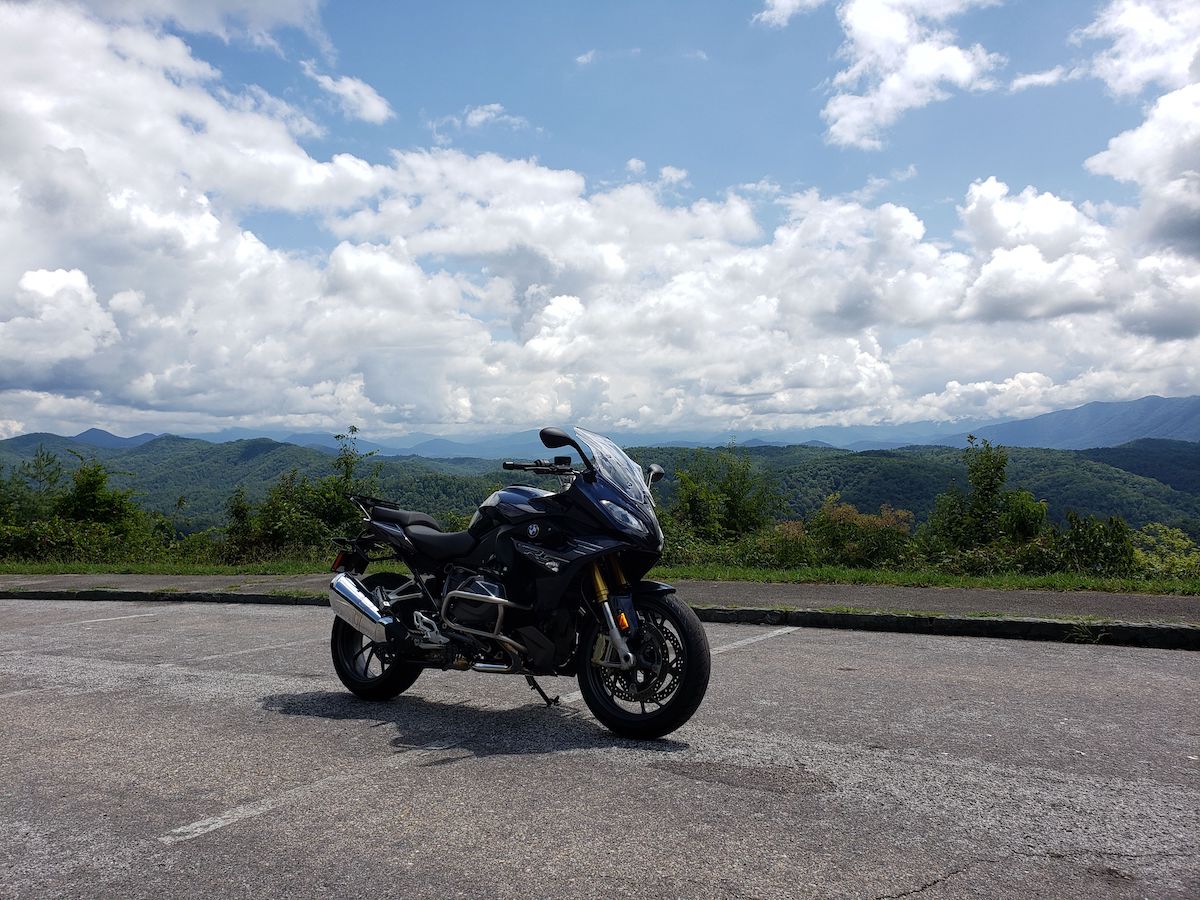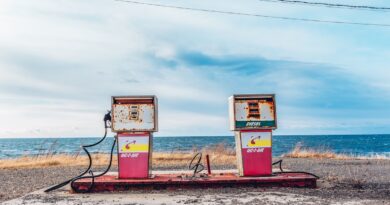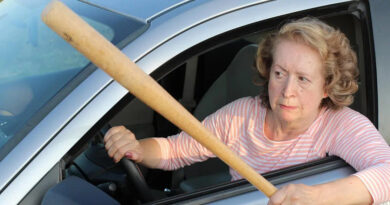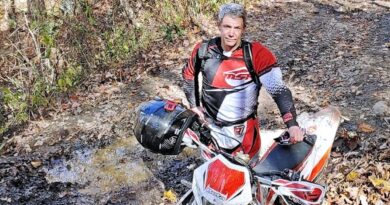A break in the clouds
What a year 2021 has been! Earlier, there was relief and jubilation as it seemed we might finally resume somewhat normal lives with pandemic worries receding and restrictions loosening, but now COVID-19 is again dominating the medical and political scene, bringing fear and animus like it did before. Likewise, after an idyllic spring here in east Tennessee, summer has been a brutal combination of relentless heat and torrential rains, with even worse conditions destroying lives and property across much of the country. News from around the world continues to bombard us with accounts and images of epic suffering—prompting normally compassionate people to shut their eyes and ears to avoid perpetual outrage and despair.
Listen to this column as Episode 4 of The Ride Inside with Mark Barnes; the episode includes a Q&A session about recovering from a traumatic motorcycle-related incident or other disturbing experience. Submit your questions to Mark for the podcast by emailing [email protected].
 Denial, often maligned as a function of indifference or irresponsibility, is actually a necessary and valuable coping mechanism when the alternative is traumatic overwhelm. A blown fuse prevents a device from functioning, but this temporary impediment protects against irreversible damage. It’s the same with our use of distraction, dissociation, and other self-protective psychological processes, both deliberate and subconsciously automatic. Everyone needs to periodically disconnect and recuperate if they’re to have anything useful to offer others, or even just survive without imploding, themselves. I’m not talking about adopting oblivion as a lifestyle, but rather the necessity of making and taking opportunities to retreat and reset our overloaded circuits.
Denial, often maligned as a function of indifference or irresponsibility, is actually a necessary and valuable coping mechanism when the alternative is traumatic overwhelm. A blown fuse prevents a device from functioning, but this temporary impediment protects against irreversible damage. It’s the same with our use of distraction, dissociation, and other self-protective psychological processes, both deliberate and subconsciously automatic. Everyone needs to periodically disconnect and recuperate if they’re to have anything useful to offer others, or even just survive without imploding, themselves. I’m not talking about adopting oblivion as a lifestyle, but rather the necessity of making and taking opportunities to retreat and reset our overloaded circuits.
A great deal of individual and communal distress has accrued over the past two years, tensions demanding release. These must and will be vented, either constructively or destructively. Our involvement in motorcycling can go either way. We may find solace in the saddle or garage, build bikes and skills, or take advantage of the fact our passion naturally features social distancing. Group rides don’t have to pose infection risks or be curtailed by safety regulations, and solo outings are even less affected—unless you need emergency care from a hospital already full of COVID cases. On the other hand, throttles can serve as outlets for anger, and anxiety can distract us from the vigilance necessary to ride another day. Conversely, taking higher risks on our bikes can be a means of distracting ourselves from troubles elsewhere, displacing one set of anxieties with another. Anything powerful enough to heal is probably also capable of doing harm, and so it is with our precious bikes.
 In less turbulent times, too, our motorcycles provide us with numerous ways to refresh and reorient. All work and no play not only makes Jack a dull boy, it also leaves him listlessly depressed or seething with resentment (see, for instance, The Shining). Obligations, complications, frustrations, worries, boredom, and losses can choke all the joy out of our lives, rendering spontaneity and vitality distant memories, or relegating them to the realm of fairytales grownups must relinquish. An afternoon of twisting a throttle or wrench can restore a sense of efficacy, give us room to breathe amidst the crowding urgencies of life, and replenish good cheer and good will. When negative feelings go uninterrupted long enough, they change from transient states to personality traits. We need ways to divide and conquer, and permission from our superegos to do so.
In less turbulent times, too, our motorcycles provide us with numerous ways to refresh and reorient. All work and no play not only makes Jack a dull boy, it also leaves him listlessly depressed or seething with resentment (see, for instance, The Shining). Obligations, complications, frustrations, worries, boredom, and losses can choke all the joy out of our lives, rendering spontaneity and vitality distant memories, or relegating them to the realm of fairytales grownups must relinquish. An afternoon of twisting a throttle or wrench can restore a sense of efficacy, give us room to breathe amidst the crowding urgencies of life, and replenish good cheer and good will. When negative feelings go uninterrupted long enough, they change from transient states to personality traits. We need ways to divide and conquer, and permission from our superegos to do so.
We may try to address burnout with a vacation, but then treat the vacation like it’s our last chance to squeeze in all the gratification we missed during the rest of the year. In addition to being obviously impossible, this approach makes us more exhausted at the end of our trip than we were at its start. Ever say something like, “I need a vacation to recover from my vacation!”? Or, if we really do have a great time without rushing through every attraction on the map, we may feel returning to work is even more onerous by contrast. Some folks determine it’s better to never go away because re-entry is so hard; all work and no play seems like the lesser of the evils—at least there are no emotionally violent transitions. The problem isn’t really going away, it’s how much freight the event has to carry. It can’t possibly offset months and months of dreariness, pressure, and other miseries, and it might just make us more acutely dissatisfied with the rest of our life.
 In addiction, satiety doesn’t exist. Getting or doing what’s desired only makes an addict crave more of the same. There’s no sense of “fullness” after the meal (whatever form it takes), just hunger for the next one. In bulimia, there’s no modulation, just oscillation between the extremes of binging and purging, with each swing prompting its own reversal. There are motorcyclists who feel and act like addicts and bulimics. The more they ride, the more they want to ride, the more riding threatens to consume all their time, energy, and money. They never feel sated, they’re planning the next outing before they’ve finished the one they’re on. This can become unmanageable or unsustainable (or intolerable to family members), and like many addicts, these riders may conclude the only solution is abstinence. They forego riding for a stretch, starve themselves of it to catch up on responsibilities and relationships, but then feel so desperately deprived they impulsively try to fill the void with a new motorcycle and flee anything that would separate them from it. Clearly, motorcyclists have no monopoly on this dynamic—it can happen in the life of any enthusiast. This process occurs to different degrees, as well, many less dramatic than I’ve described here. The more painful a person’s day to day life is, the more relief they’ll seek from their recreational pursuits. If you’re fortunate enough to have a fulfilling job and domestic bliss, you don’t need your motorcycle to do as much for you; you’re actually free to enjoy it more, since there’s less at stake.
In addiction, satiety doesn’t exist. Getting or doing what’s desired only makes an addict crave more of the same. There’s no sense of “fullness” after the meal (whatever form it takes), just hunger for the next one. In bulimia, there’s no modulation, just oscillation between the extremes of binging and purging, with each swing prompting its own reversal. There are motorcyclists who feel and act like addicts and bulimics. The more they ride, the more they want to ride, the more riding threatens to consume all their time, energy, and money. They never feel sated, they’re planning the next outing before they’ve finished the one they’re on. This can become unmanageable or unsustainable (or intolerable to family members), and like many addicts, these riders may conclude the only solution is abstinence. They forego riding for a stretch, starve themselves of it to catch up on responsibilities and relationships, but then feel so desperately deprived they impulsively try to fill the void with a new motorcycle and flee anything that would separate them from it. Clearly, motorcyclists have no monopoly on this dynamic—it can happen in the life of any enthusiast. This process occurs to different degrees, as well, many less dramatic than I’ve described here. The more painful a person’s day to day life is, the more relief they’ll seek from their recreational pursuits. If you’re fortunate enough to have a fulfilling job and domestic bliss, you don’t need your motorcycle to do as much for you; you’re actually free to enjoy it more, since there’s less at stake.
My point is our use of motorcycling to maintain psychological equilibrium should be modulated. Overdoing it can be problematic, but so can underdoing it. Not only do our skills rust without practice, we also suffer in insidious ways without regular infusions of relaxation and excitement. We skip a ride to check a chore off our list—no big deal at the time. Then we skip a ride to chat with a friend who drops by. Again, no big deal. We cancel a ride because of bad weather. Once again, no big deal—by itself. These micro-deprivations add up, though, and before we know it, we’re cranky, sullen, foggy, and confused about why our attitudes slid downhill, or we do know why and become ravenously frantic to extract the antidote from our bikes. Now we’re in hot pursuit of compensation we can’t actually get in a hurry.

You don’t have to be an exercise physiologist to understand 30 minutes of cardio each day is healthier than trying to run 3.5 hours once a week. By the same token, it’s better to get a weekly dose of riding, even if it’s just for an hour or two than to try to make up for lots of lost time with a grand adventure every few months. No ride, no matter how splendid, can meet the expectations and needs of someone who has gone without for a long, long time. Just think about how much anticipation is waiting to be unwound on that first ride each spring; it can’t be done all at once.
Being a regular rider makes one a better rider and supplies vitally important interruptions in the drudgery, chaos, and stressful demands of routine existence. Everyone needs a break in the clouds, and we motorcyclists have a great way to give ourselves exactly that. Put your next ride on the calendar now. It’ll make all the other stuff more bearable and more doable.



